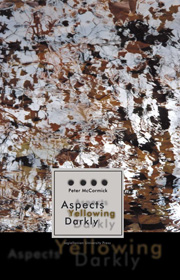 Aspects Yellowing Darkly
Aspects Yellowing Darkly Book contents
- Frontmatter
- Dedication
- Epigraph
- Contents
- PREFACE
- ORIENTATIONS – Moral Intuitionisms and the Emerging Europe
- PART ONE FIRST READINGS
- PART TWO SECOND THOUGHTS
- Chapter Five Montale and Ethical Emancipation from Suffering
- Chapter Six Valéry and the Visual Perception of Suffering
- Chapter Seven Eliot on Moral Discourse on Suffering
- Chapter Eight Residues and Surfeits of Sense
- ENVOI
Chapter Eight - Residues and Surfeits of Sense
from PART TWO - SECOND THOUGHTS
Published online by Cambridge University Press: 05 September 2014
- Frontmatter
- Dedication
- Epigraph
- Contents
- PREFACE
- ORIENTATIONS – Moral Intuitionisms and the Emerging Europe
- PART ONE FIRST READINGS
- PART TWO SECOND THOUGHTS
- Chapter Five Montale and Ethical Emancipation from Suffering
- Chapter Six Valéry and the Visual Perception of Suffering
- Chapter Seven Eliot on Moral Discourse on Suffering
- Chapter Eight Residues and Surfeits of Sense
- ENVOI
Summary
In the previous three chapters we were able to make space for second thoughts about the fruitfulness of the extraordinary linguistic resources to be found in the European high modernist poetry of suffering for helping to work towards consensus in ongoing EU debates of principled bases for an eventual common European social policy. In this chapter we return for second thoughts to our earlier considerations in Chapter Two about the senses of modernity today, for much still remains obscure about the modern intellectual backgrounds of such debates. There we looked in particular at two different philosophical readings of modernity within contemporary Anglo-American philosophical reflection. By contrast, here we will take up two readings of modernity within contemporary continental philosophical reflection.
Poetic Languages
Although Hans-Georg Gadamer presented his most influential discussions on Europe in a collection of essays, much of his reflection on philosophy and literature is to be found in Truth and Method (1960). He also discussed questions about the meaning and truth of literary works of art and especially poetry in many of his other works. Some of the most important essays are to be found in The Relevance of the Beautiful, a collection that includes shorter work arising almost entirely from some of his subsequent and extensive reflection on the various strengths and weaknesses of Truth and Method.
In “Aesthetics and Religious Experience,” an essay he first published in 1978, Gadamer took up once again, although only in passing, one of his many formulations about the relations between truth and literary works of art.
- Type
- Chapter
- Information
- Aspects Yellowing DarklyEthics, Intuitions, and the European High Modernist Poetry of Suffering and Passage, pp. 173 - 190Publisher: Jagiellonian University PressPrint publication year: 2010


